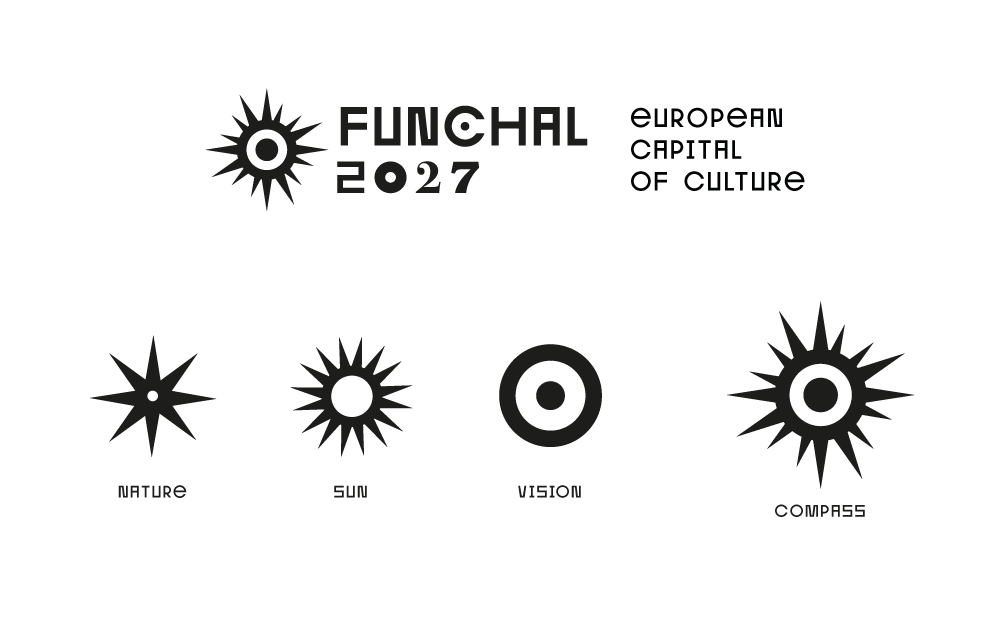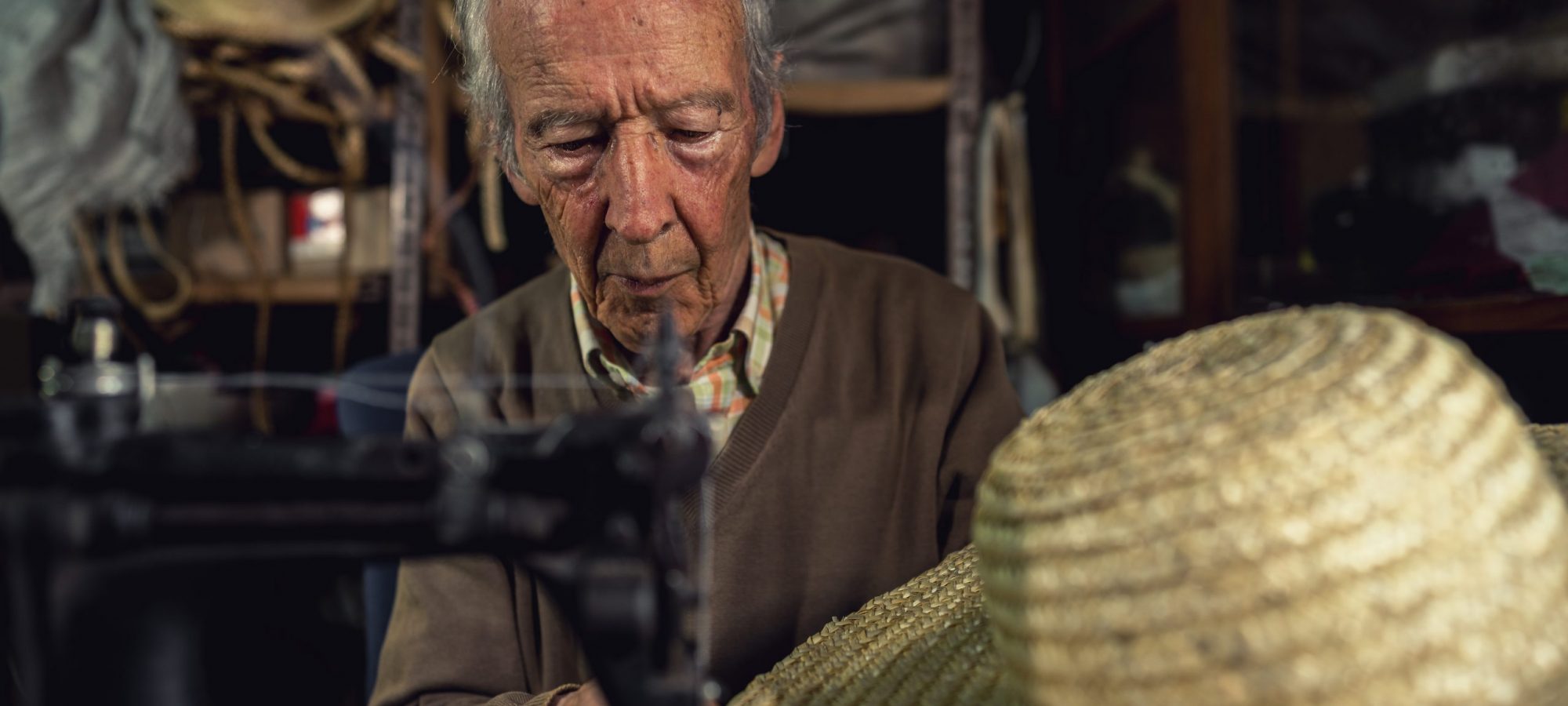Application for the European Capital of Culture
FUNCHAL 2027
Beyond
the map,
a common
ground.
On the abyss it was Funchal.
On the abyss of the New World, that abyssal gesture of the Discoveries, Funchal was the beacon of the first globalization, the measure of all things to come. The first city founded by Europeans outside the European continent, Funchal soon conquered an incomparable status in the Atlantic. In the pitch dark of the unknown, while adamastors roared against the boldness of a people, Funchal was the torch.
The world began to be a common home in Funchal and it is no hallucination to glimpse the embryo of the international capitalism on that five-century horizon. It was with the apogee of the saccharine culture, right in the midst of the 15th century, that Funchal, even before it became a city, became an unavoidable trading post, a place in continuous transit of people, many goods and few evils. From the world to the island and from the island to the world, Funchal became an urban center of capital importance for the peaceful coexistence between peoples, but also a bridge for the disputes between the species and God. The diocese of Funchal was the largest on the planet, since the landscapes of Vera Cruz, now Brazil, were under its ecclesiastical jurisdiction.
Funchal’s universal aspiration is also measured by the cardinal points of the cross that tops our Cathedral, a forerunner of cathedrals outside the European continent: home of departure of men and God. Everywhere. And the route begins at Rua de Santa Maria, probably the inaugural path of a species that began to recognize itself as a whole. Humanity “united in diversity”, today the motto of the European Union. Fortunately, the settlers designed this first street with escape routes. Imagine what would become of the planet – and of Humanity – if the first street of the New World had no exit. It happened to a man who got up early to go around the Earth. He made a mistake, found himself in a dead end, and went back to bed. For so little an epic journey is missed.
What today is ultra-peripheral was once a center.
Funchal became the headquarters of a World under revision.
Then as now, we still feel a thirst for the World.
Funchal
Beyond the map, a common ground.
Funchal 2027
Culture Program
The institution of the title European Capital of Culture dates back to 1985. Since then, dozens of cities have been awarded the distinction, all of them located in the European continent. Funchal is not the first outermost city to apply for the title, but it is our conviction that it can become the first to win. We are working to achieve a goal that is not only the desire of Funchal and the people of Funchal, but of the entire Autonomous Region of Madeira, all Madeirans and all the outermost regions of Europe.
Funchal’s candidacy to the European Capital of Culture 2027 is one of the most ambitious socio-cultural aspirations in six centuries of human presence in the Pearl of the Atlantic. The ongoing project has 2027 as its apogee, but it is intended to (re)vision the cultural perspective of the city with a much broader time horizon.The candidacy, in itself, is an opportunity to project the Heritage of Funchal, material and intangible, the ideal moment to set the coordinates of the city as capital of Madeira, capital of the Atlantic, extension of Portugal and Europe beyond the continental map. We are committed to build an inclusive and participative program, under the aegis of a sustained and sustainable cultural strategy that enhances our specificities as people of Funchal, Madeirans, Portuguese and Europeans.
We do want a timeless Funchal
that does not neglect the marks of time.
We want a Funchal that discovers and rediscovers itself in the multicultural Atlantic, that ancestral affluent of a Europe united in diversity. Together – in Madeira and in the immense raft of stone that is our diaspora – the first European Capital of Culture outside the “old continent” will be a reality.
Strategic Lines
Route
of the
Ultraperipheries
The island is, by nature, discontinuity,
armistice or rotten peace,almost always idyll even when exile.
Home of mermaids who sing fatal songs, of merciless Cyclops, of goddesses like Circe, of hospitable and peaceful people, of real men and women, places where life happens on the edge of abysses, Funchal’s candidacy takes on the intent of listening to the oracle of the peripheries: what are the European islands and their cities for creation? How is artistic manifestation influenced by the insular worldview? Is there a distinctive feature in the art that springs from the peripheries? How does the cultural experience of the island influence its surroundings and in what ways do the surroundings shape the island cosmos? We are therefore interested in updating the seismographs that measure islands creative activity, or that have an island origin. In the search for the alpha and omega, let’s start with Homer, of course. There are doubts surrounding the identity of Homer, the author of the “Iliad.”
An islander, however, is absolutely certain about the blind poet: he was not born on an island.
If he was an islander, he would have written the “Illiad“.
A common
ground
Imagine the immemorial night, imagine a very full sea, imagine men and women drifting, groping in the dark that is only raft and water, men and women looking for a place to lay their heads. They are homeless people from Babel who row and pray in the same direction, men and women who invent hope in many languages. Suddenly, a rare sound is heard, an immemorial thud for those who set sail at the beginning of liquid times. It is still very dark, but everyone knows that they have reached peace.
It is necessary to announce
to the others that there is room here.
Someone climbs to the top of the tallest tree ever felt, only felt because it is not yet clear. The man who reaches the top is startled. “I was already tired of waiting. Pleasure, I’m Prometheus. Here.” He who calls himself Prometheus is in a hurry, he seems to have unpostponable commitments like a conviction. The man believes he holds the dawn in his hands. It is only a torch, soon to be Olympic
Among the foliage, traces of things that do not belong to those who walk and swim. “It was worth it. Icarus.”
It doesn’t know who Icarus was, but it realizes that someone passed by dreaming uncontrollably.
Light is made in the vastness of the waters, a halo emerges that illuminates, signals, orients, and attracts. The man who only wanted to look around invented the lighthouse.
You
are here
Everything that rules
the life of a society is a concept.
There are absolutely antagonistic concepts of social organization, although they have been called into existence to frame similar realities. “Center” and “periphery” are also concepts. For more or less complex reasons, a community assigns primacy to a place. Perhaps it is the strange drive of a species that is oriented towards a guiding center. Confused? Like mankind. Columbus reached the synthesis, a navigator who wanted from the west the east. Was he wrong? No, it just depends on the point of view. On a globe-shaped planet, it is possible to reach north through south, go backwards by going forwards.
God, Man, the Earth.
Everything in the center, everything overlapping, everything piled up in the dispute for a place in the sun. In the shade, Copernicus laughs, Galileo laughs, Fernão Magalhães laughs, central men for whom the surroundings were not only landscape. Even the many gods who always lived on the periphery, often on the islands, laugh. The islands were only central in art, that part of real life used to the surroundings. Funchal also suffers from this centripetal syndrome. A new concept should be invented: itinerant centers that tell those who arrive “you are here”.




